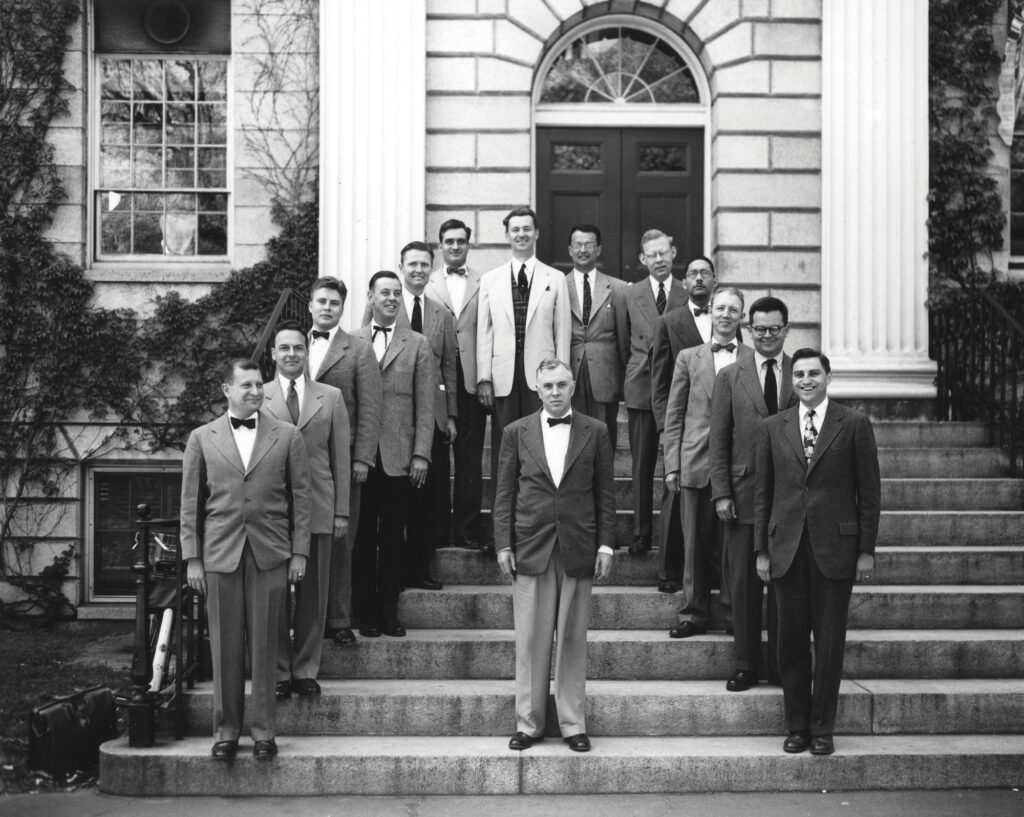
Class Members
Malcolm Bauer
Simeon Booker
Bob Eddy
Roy Fisher
Edwin Guthman
William Lederer
Sylvan Meyer
Hugh Morris
Hoke Norris
Dwight Sargent
Dana Schmidt
Angus Thuermer
Wellington Wales

Malcolm Bauer
Simeon Booker
Bob Eddy
Roy Fisher
Edwin Guthman
William Lederer
Sylvan Meyer
Hugh Morris
Hoke Norris
Dwight Sargent
Dana Schmidt
Angus Thuermer
Wellington Wales